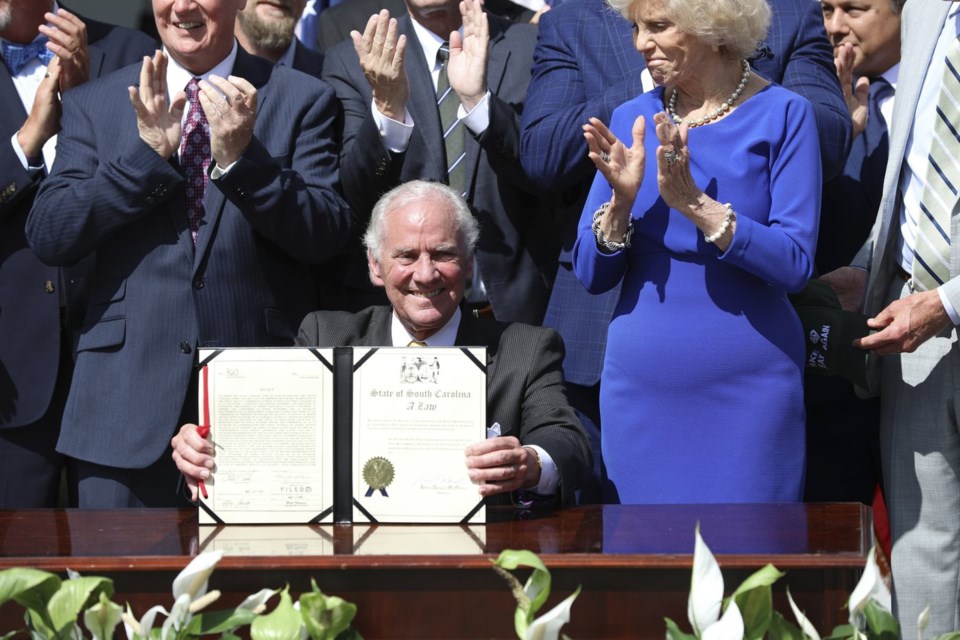COLUMBIA, S.C. (AP) — Under the hot South Carolina summer sun, Republican Gov. Henry McMaster held a ceremonial bill signing for a law he and other supporters said will make sure the rapidly growing state has the energy to run air conditioners and anything else well into the future.
McMaster signed the bill into law more than a month ago. But Wednesday's ceremony was a chance to bring utility executives and other workers together with lawmakers to celebrate the promise from supporters that the law will clear the way to meet the power needs of the 1.5 million people the state has added this century — and its fast industrial growth.
“It is hot and promising to get hotter, so we'll be very quick here. This is of course to celebrate a great step for South Carolina,” McMaster said at the ceremony, which lasted less than 15 minutes before most everyone went back into the air-conditioned mansion.
The law has immediate impacts. It clears the way for private Dominion Energy and state-owned Santee Cooper to work together on a 2,000-megawatt natural gas plant on the site of a former coal-fired power plant in Colleton County as long as regulators give their OK.
Utilities now can appeal decisions from those regulators at the Public Service Commission directly to the South Carolina Supreme Court, meaning projects or rate cases won't be in limbo for years as they wind through the courts.
Power companies can now ask for smaller rate increases every year instead of hitting customers with what was sometimes a double-digit increase to cover inflation and rising costs after four or five years.
Also in this session, lawmakers cleared the way for cloud computer companies, utilities or others to offer to take over the long-abandoned project to build two new nuclear reactors at the V.C. Summer site near Jenkinsville.
Ratepayers paid billions of dollars on the project, which was abandoned in 2017, well before it generated a watt of power.
The feasibility of restarting construction or whether a private entity or a utility could get the licenses and permissions that have lapsed has not been determined.
The bill didn't get unanimous support. Some Democrats worried consumer protections and energy efficiency efforts were removed.
Some Republicans and Democrats worried the state didn't set limits on data centers and that would allow the computer farms to suck up massive amounts of the new energy and raise costs to homeowners and others while providing few local benefits.
But Wednesday was a day to celebrate for someone like Dominion Energy South Carolina President Keller Kissam sweating in his suit and tie instead of the short-sleeved polo he would prefer to wear.
“With the heat we experience in South Carolina and you've got to be able to produce 24/7,” Kissam said. “Our customers expect when they flip a switch or bump the thermostat there's going to be enough electricity.”
Jeffrey Collins, The Associated Press



